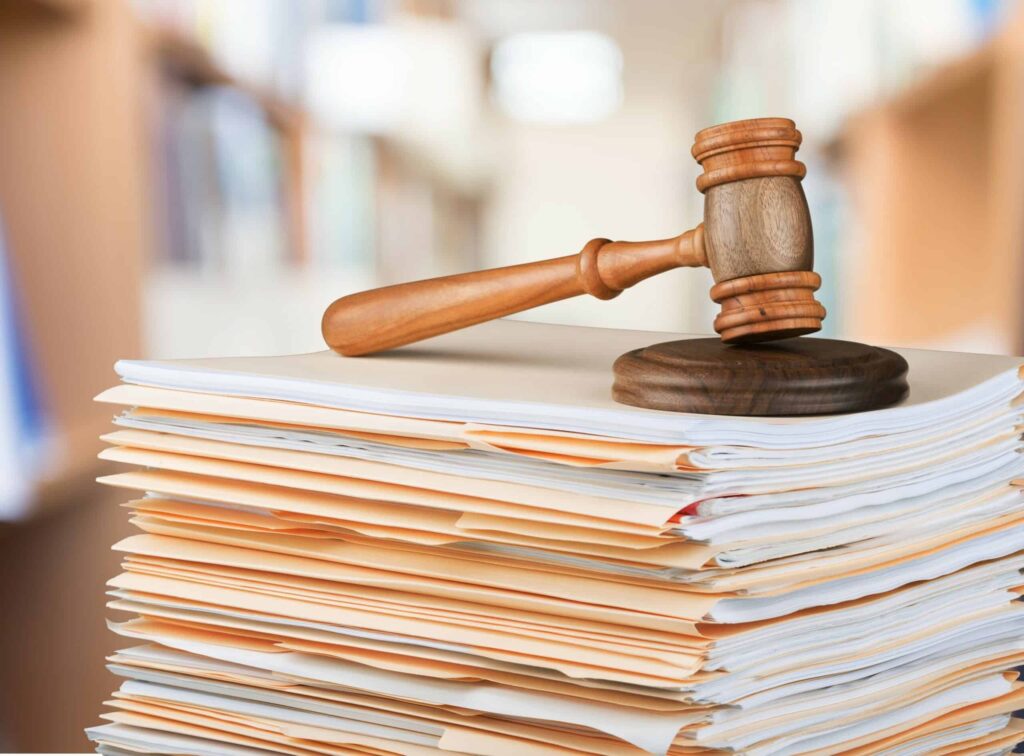Enforcement Mechanisms of the German Supply Chain Due Diligence Act (LkSG)
*In April 2025, the German government announced their intention to replace the LkSG with the requirements of the CSDDD once these requirements have been finalized under the Omnibus Proposals. This means that businesses in scope no longer have to report under the LkSG, however due diligence requirements continue as the German authorities may still investigate and sanction severe human rights violations in German companies’ supply chains. These definitions aren’t clear and there’s a lot of uncertainty – contact our Consulting team for the very latest updates and recommendations.
In recent years, there has been a growing focus on the ethical and sustainable practices of businesses, particularly in the context of global supply chains. The German supply chain Act (LkSG), which came into effect in 2023, represents a significant step in this direction.
The LkSG aims to ensure that companies based in Germany or operating in the German market uphold human rights and environmental standards throughout their supply chains. This law includes some different ways for the German government to make sure businesses comply.
We look at the enforcement mechanisms of the German supply chain Act, including the government department that has the powers to use these mechanisms.
Who monitors compliance with the LkSG?
The Federal Office for Economic Affairs and Export Control, known as BAFA, is the German regulatory body responsible for monitoring compliance with economic and export control laws.
Enforcement powers granted to BAFA
The German supply chain Act introduced comprehensive supply chain due diligence obligations for companies based in Germany. To enforce compliance with these obligations, the Act empowers BAFA with a range of mechanisms, including investigation, corrective measures, and penalties such as fines or exclusion from public procurement.
Understanding the potential consequences of non-compliance, and driving responsible supply chain management, is crucial for businesses to avoid legal risks.
Investigation: BAFA has broad investigative powers to examine a company’s compliance with the LkSG. This includes the right to:
- Request information and documentation
- Conduct on-site inspections of business premises
- Interview employees and other relevant individuals

Orders and fines: If BAFA identifies violations of the LkSG, it can issue orders for corrective measures. Failure to comply can result in substantial fines. These fines can reach:
- Up to €800,000 for specific violations
- Up to 2% of a company’s annual global turnover (if the company’s revenue exceeds €400 million).
Exclusion from public procurement: In severe cases, companies may be prevented from being given public procurement contracts.
Additional enforcement mechanisms
Civil liability: The German supply chain Act introduces civil liability as an additional enforcement mechanism, enabling affected parties to seek compensation for damages incurred due to a business not complying with the Act. This liability can arise in situations where companies fail to meet their due diligence obligations, resulting in human rights violations or environmental damage. Affected parties, including individuals, organisations or even the German state itself, can bring civil lawsuits against companies to recover damages and obtain appropriate remedies.
Reputational damage: Non-compliance with this supply chain Act could lead to significant reputational damage for companies. The Act emphasises transparency and reporting, making it easier for stakeholders, including consumers, investors, and civil society organisations, to scrutinise companies’ supply chain practices. Companies that receive fines, penalties or other actions for failing to meet the requirements of this law will likely face negative publicity. This reputational damage can have substantial financial consequences, including loss of consumer trust, reduced sales, and difficulties in attracting investors and partners.
Important considerations for compliance
- Due diligence as defence: Companies that demonstrate robust due diligence processes in compliance with the LkSG may have a defence against potential fines, but this does not necessarily extend to civil lawsuits.
- Proactive approach: Taking the LkSG seriously, implementing proactive risk management and demonstrating transparency are critical to avoid enforcement actions.
How BAFA prioritises enforcement
BAFA prioritises enforcement based on:
- The severity of potential human rights violations or environmental damage.
- The size and influence of the company involved.
- The complexity of supply chains.
- A company’s record on addressing sustainability risks.
BAFA collaborates with other regulatory authorities, law enforcement agencies, NGOs, and industry associations to enhance the effectiveness of enforcement. It encourages businesses to take proactive measures to identify, prevent and mitigate supply chain risks, fostering a culture of social and environmental responsibility throughout the German economy.

Learn more about the LkSG on the official government website for the German Federal Ministry of Labour and Social Affairs.
By staying up to date on the latest developments related to the LkSG, companies can ensure that they are compliant with the law and are taking steps to improve working conditions in their supply chains.
How Sedex can support:
Gap analysis: Leveraging frameworks like the UN Guiding Principles, our Consulting service performs a thorough gap analysis to pinpoint necessary adjustments for compliance with the German Supply Chain Due Diligence Act. Use our insights to craft a precise action plan for enhancements or corrective measures.
Risk assessment: Utilise our Pre-Assessment Tool to assess human rights and environmental risks throughout your and your suppliers’ operations, as required by the LkSG and other sustainability-related laws. This tool allows for a comparative analysis of risks by country, sector, and site, aiding in strategic prioritisation.
Sustainability assessment: Through the Sedex Self-Assessment Questionnaire, suppliers detail their site operations, working conditions and employee information. Our comprehensive data platform enables storage, sharing and reporting of supply chain data, enhancing transparency and simplifying management for large corporations and supplier businesses alike.
Due diligence and compliance: Our Consulting service can help your organization establish the right policies and procedures to meet legal requirements and ensure thorough due diligence in your supply chain. We also assist in illustrating your compliance across global supply chains and locations. Our reports compile your data in a way that allows you to present the compliance status of your supply chain or sites while keeping specific supplier identities and sensitive business information confidential.





